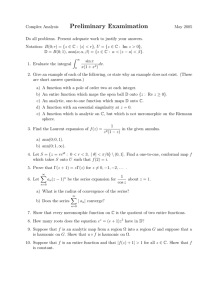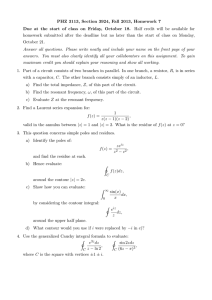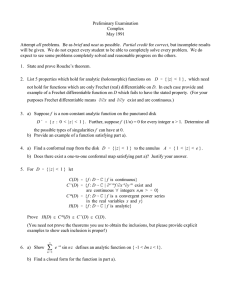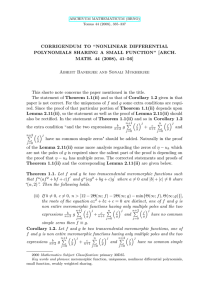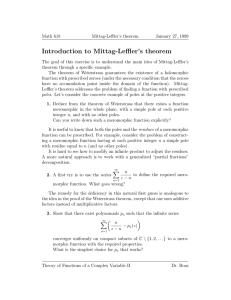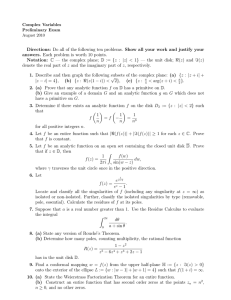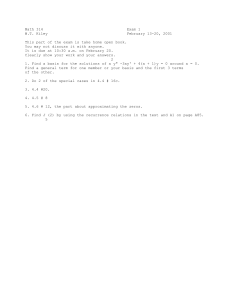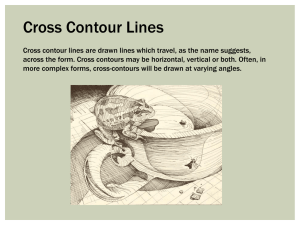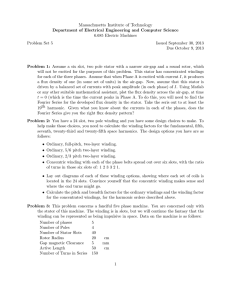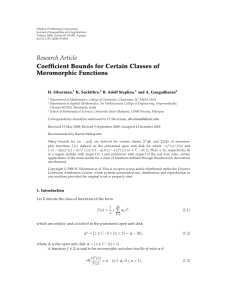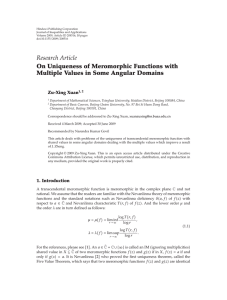Complex Analysis - Day 2 October 18, 2007
advertisement
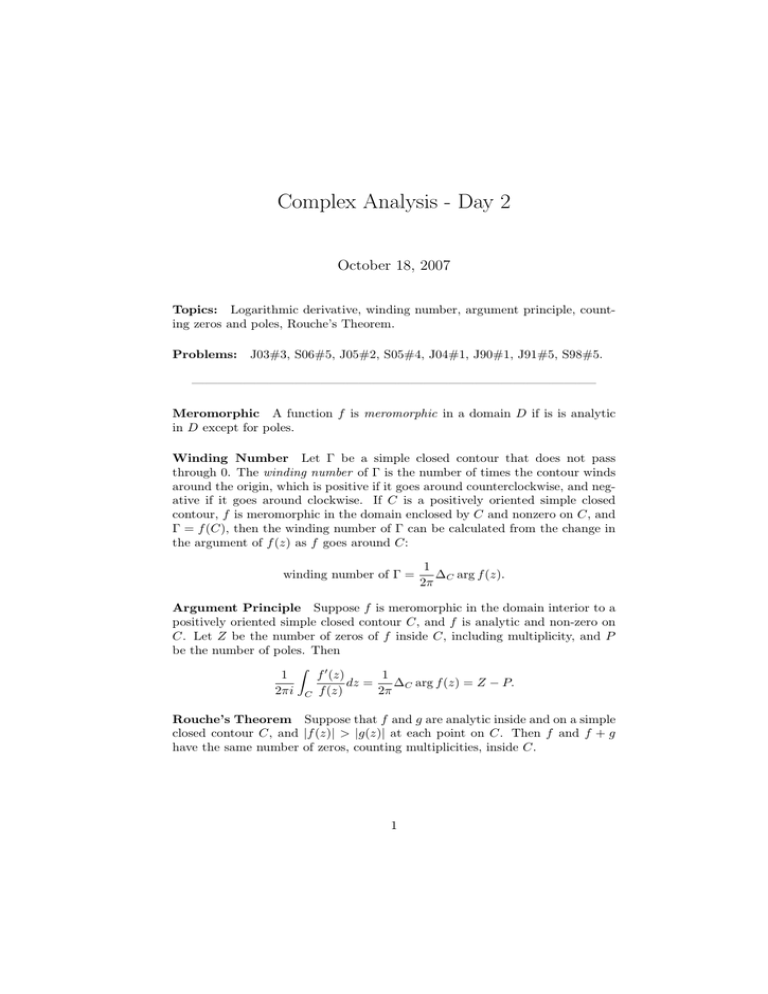
Complex Analysis - Day 2 October 18, 2007 Topics: Logarithmic derivative, winding number, argument principle, counting zeros and poles, Rouche’s Theorem. Problems: J03#3, S06#5, J05#2, S05#4, J04#1, J90#1, J91#5, S98#5. ———————————————————————————————– Meromorphic A function f is meromorphic in a domain D if is is analytic in D except for poles. Winding Number Let Γ be a simple closed contour that does not pass through 0. The winding number of Γ is the number of times the contour winds around the origin, which is positive if it goes around counterclockwise, and negative if it goes around clockwise. If C is a positively oriented simple closed contour, f is meromorphic in the domain enclosed by C and nonzero on C, and Γ = f (C), then the winding number of Γ can be calculated from the change in the argument of f (z) as f goes around C: winding number of Γ = 1 ∆C arg f (z). 2π Argument Principle Suppose f is meromorphic in the domain interior to a positively oriented simple closed contour C, and f is analytic and non-zero on C. Let Z be the number of zeros of f inside C, including multiplicity, and P be the number of poles. Then Z 1 f 0 (z) 1 dz = ∆C arg f (z) = Z − P. 2πi C f (z) 2π Rouche’s Theorem Suppose that f and g are analytic inside and on a simple closed contour C, and |f (z)| > |g(z)| at each point on C. Then f and f + g have the same number of zeros, counting multiplicities, inside C. 1
![Mathematics 414 2003–04 Exercises 5 [Due Monday February 16th, 2004.]](http://s2.studylib.net/store/data/010415766_1-b65af2bb66ab8e422354912dcedcb6a6-300x300.png)
